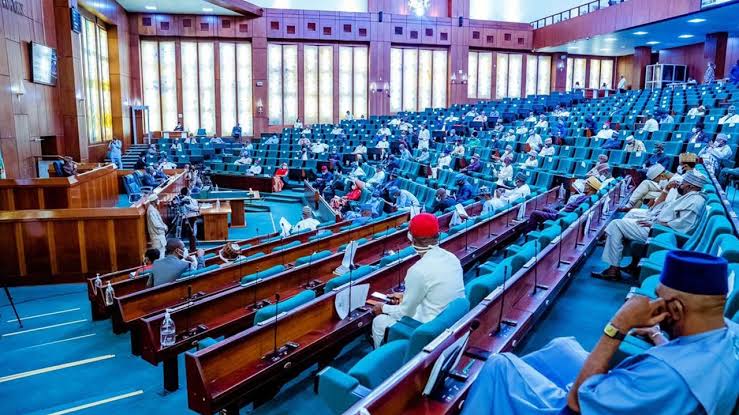The constitution amendment ritual by the National Assembly begins. This 10th Assembly, like those before it, declared it has fixed a December 2025 deadline for completion of its work.
The Deputy Speaker of the House of Representatives, Hon. Benjamin Kalu, speaking at the pre-inaugural meeting of the House Committee on the Review of the 1999 Constitution in Abuja, disclosed that 40 bills have already been received for the commencement of the 1999 constitution review. He, however, said that the constitution review committee would be officially inaugurated on February 26, 2024.
He hinted that the committee is mindful of setting a realistic timeline that does not conflict with electoral activities which would advertently or inadvertently affect the alteration process which will include the consideration of some important bills that failed to receive the needed attention in the last constitution review.
We appreciate the fact that he admitted that there is some level of fatigue in the amendment process by some vocal sections of the populace.
Indeed, the deputy speaker was right about populace fatigue towards this exercise, no thanks to the history of the past 24 years and the attitude of previous lawmakers.
Since 1999, the National Assembly has embarked on a series of public hearings to amend the 1999 Constitution. Before then and in between, political reforms have also been held to address critical issues in the constitution.
In the years since, different styles have been adopted by the assembly, including separate public engagement by the two Chambers as well as regional tours.
Interestingly, in our view, the top issues that have remained debated include federal restructuring, resource control, judicial reforms, local government autonomy, state police, and national security.
Also, many ethnic nationalities and interest groups have argued that the content and character of the 1999 Constitution have been stifling their growth and development.
There is also the objectionable posture towards the current Constitution over what some agitators describe as the historic lie told in the preamble of the 1999 Constitution that “we the people” of Nigeria came together to deliberate upon and collectively approve the nation’s constitution. Those who think this way aver that such debates and public input did not occur.
With such agitations still on, decades after, and the continuing clamor for a new people-driven constitution to midwife the democratic and governance process, it remains to be seen whether this session of the National Assembly can be any different from its recent forebears.
The quality of public engagement efforts of the current review process will be key. How far-reaching it will be is yet to be seen. To be fair, the first, second and third amendments to the Constitution were debated and signed into law during the tenure of the sixth National Assembly (2007-2011).
The seventh National Assembly (2011-2015) conducted a long-winding review process. Despite significant expenditure, the process ultimately failed after the amendments, which were submitted as a single bill, were vetoed by President Goodluck Jonathan.
Still, concerns of under-performance against the billions of naira budgeted for the exercise abound, a situation which seems to portray a tradition where sets of lawmakers are more interested in all else but a change in the status quo.
So far, there is little to show that this set would be any different even though the key issues begging for constitutional attention are already laid out.
The way and manner they have carried on with their duties so far are not sufficiently inspiring. The self-serving disposition of some of the lawmakers especially in the way they have pursued their personal interests reveals so much about their serious approach or lack of it to this matter. What’s more, the rubber stamp perception of this National Assembly, much like the one before it, also puts them in a poor light with regards to pushing the boundaries of the law in the genuine interest of Nigerians.
It might seem harsh to pass such a no confidence verdict on this Assembly but recent history has not helped their case. Of course, the blame for the poor outcomes won’t go to the assembly alone considering that the state assemblies are also critical stakeholders in the process.
And with the grip state governors have on state assemblies it’s no wonder that even amendments that would have made them truly independent to do their job have been stymied.
It is sad, in our opinion, that the legislature, the emblem of democracy and the real time link between the masses and the government as an institution, has been emasculated by the executive to the extent that it no longer understands the place of its veto powers.
However, as this National Assembly begins this round of constitution amendment, it is instructive that it recognises that with each cycle that fails to produce the requisite laws to address critical issues, there is a loss of faith in the willingness of the body to make the laws that reflect the will of the people. The repercussions of this, as we have seen for the better part of the last 24 years, is the aggressive eroding of quality governance, massive financial wastages and leakages, worsening unemployment and heightened insecurity and unrest. It is time, in our opinion, to end the vicious cycle of ineffective performance.
We’ve got the edge. Get real-time reports, breaking scoops, and exclusive angles delivered straight to your phone. Don’t settle for stale news. Join LEADERSHIP NEWS on WhatsApp for 24/7 updates →
Join Our WhatsApp Channel










